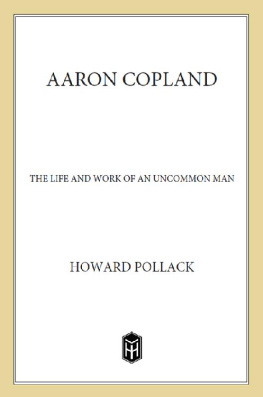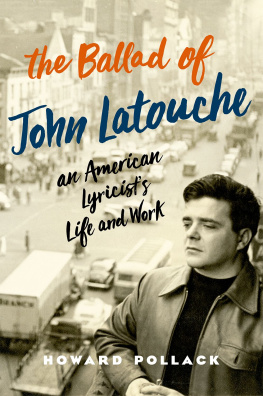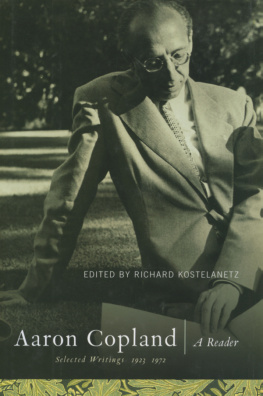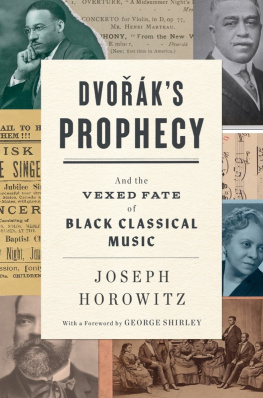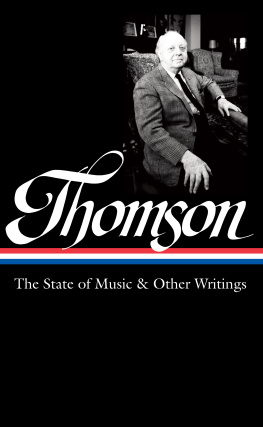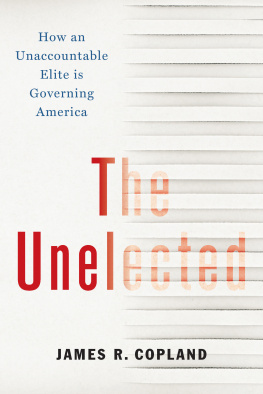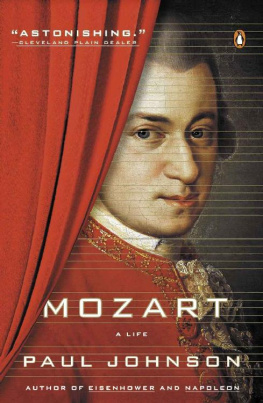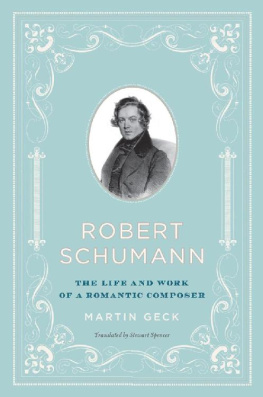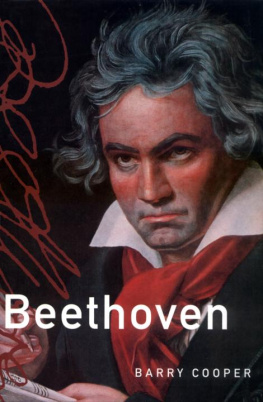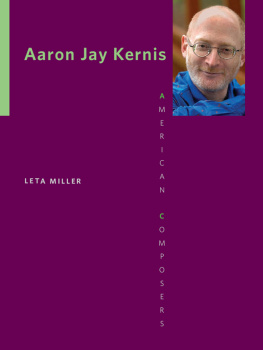AARON COPLAND
The Life and Work of an
Uncommon Man
HOWARD POLLACK
Henry Holt and Company
New York
Thank you for buying this
Henry Holt and Company ebook.
To receive special offers, bonus content,
and info on new releases and other great reads,
sign up for our newsletters.

Or visit us online at
us.macmillan.com/newslettersignup
For email updates on the author, click here.
The author and publisher have provided this e-book to you for your personal use only. You may not make this e-book publicly available in any way. Copyright infringement is against the law. If you believe the copy of this e-book you are reading infringes on the authors copyright, please notify the publisher at: http://us.macmillanusa.com/piracy.
In memory of my grandparents
Anna and Julius Malamed
For many years I took Copland for granted. Studying music at college, I may well have surmised his importance from Donald Jay Grouts A History of Western Music (the 1960 edition), which devoted more space to Copland than to any other American composer, and from Otto Deris Exploring Twentieth-Century Music. Yet he remained a shadowy figure at some distance from the central concerns of myself, my classmates, and my teachers.
During my graduate studies in musicology at Cornell University, my appreciation for Copland deepened. My teachers included William Austin, who would write the Copland entry for the New Grove Dictionary, and Robert Palmer, a Copland protg. My colleague, the composer Christopher Rouse, also furthered my knowledge of Coplands music. And in 1979, I met Copland, who had agreed to let me, a graduate student, interview him about Walter Piston, my dissertation topic. Still, the significance and drama of Coplands accomplishment eluded me.
In the early 1990s, while investigating the friendship between Copland and the Mexican composer Carlos Chvez, I grew dissatisfied with the state of Copland scholarship. The two pioneering and helpful studies by Arthur Berger (1953) and Julia Smith (1955) obviously needed updating;
Toward this end I made repeated visits to the Copland Collection housed in the Music Division of the Library of Congress, where Wilda Heiss and other staff members kindly made materials available to me even before the collection had been fully processed. The Music Division of the New York Public Library, the publishing firm of Boosey & Hawkes, and other institutions offered further help, as did Stephen Luttmann, Farhad Moshiri, and other resourceful librarians at the University of Houston.
I found letters, writings, sketches, drafts, and unknown pieces that shed new light on familiar and unfamiliar works alike; and I conducted interviews that helped me gain a better understanding of Copland and his world. I also came across widespread misconceptions about both the man and his music, in part the result of a lack of serious Copland research; as recently as 1994 the musicologist Larry Starr thought Copland still widely underrated and insufficiently studied. Fortunately, this situation is rapidly changing, thanks to the scholarly interest generated by the opening of the Copland Collection.
I decided not to write a straightforward chronological narrative, partly because many aspects of Coplands life cried out for more contextual study than they customarily have received. I further attempted to discuss the music without recourse to musical examples and with minimal technical jargon. Included at the end of this volume is a catalog of musical works that includes premieres and other information not necessarily found in the body of the text.
Many individuals aided me in various aspects of this project. A number of musicologists and theorists, including Elizabeth Bergman, Jessica Burr, Jennifer DeLapp, Terri Gailey Everett, Margaret Susan Key, Neil Lerner, Roberta Lindsay, Daniel Mathers, Mitchell Patton, and Marta Robertson, generously shared their ideas and findings with me.
I also received assistance from Samuel Adler, Edward Albee, Philip Alexander, Betty Auman, William Austin, Milton Babbitt, Walter Bailey, Stephen Banfield, John Bell, Arthur Berger, Rosamund Bernier, Nina Bernstein, Philip Blackburn, Alan Boehmer, Henry Brant, James Brown, Rudy Burckhardt, Carol Bushell, Ronald Caltabiano, Gena Dagel Caponi, Bridget Carr, Robert Citkowitz, Alfred Cochran, Christopher Cole, David Conte, Mervyn Cooke, Roque Cordero, John Corigliano, Robert Cornell, Camille Crittenden, Irving Dean, Henry Ellis Dickson, Helen Didriksen, Mike Doran, Stanley Drucker, Shelley Edelstein, Vivian Fine, Ray Fliegel, Lukas Foss, Ellis Freedman, Hershel Garfein, Jack Garfein, Philip Glass, Morris Golde, Sylvia Goldstein, Neil Gould, Judith R. Greenwald, Kim Hartquist, Richard Hennessy, Jeff Herman, Adolph Herseth, Timothy Hester, Michael Hicks, David Hogan, Mark Horowitz, Michael Horvit, Betty Izant, Edward Jablonski, David Jacobs, John Kennedy, Rick Kessler, Barbara Kolb, Karl Korte, Donald Koss, Kim Kowalke, Rheba Kraft, Rose Lange, Nol Lee, Luis Leguia, Keith Lencho, Jeffrey Lerner, Roger Levey, Erin Lynn, Robert Mann, Newton Mansfield, Burt Marcus, Ralph Marcus, Jean-Pierre Marty, Roberta Mittenthal, Paul Moor, Edgar Muenzer, Gayle Murchison, Thea Musgrave, J. Kevin OBrien, Michael OConnor, Carol Oja, Andrea Olmstead, Juan Orrego-Salas, Leo Panasevich, Donald Peck, Adele Pollack, Linda Pollack, Walter Pollack, Stuart Pope, Donald Plotts, David Price, Jennifer Rector, Ned Rorem, Laurence Rosenthal, Christopher Rouse, Amy Rule, Joel Sachs, Arnold Salop, Michael Samford, Nancy Schoenberger, Gunther Schuller, Harold Shapero, Jonathan Sheffer, Zoya Shukhatovich, Doris Sing, Leonard Slatkin, Michael Slayton, Leo Smit, Catharine Parsons Smith, Laura Snyder, Randy Snyder, John Solum, Stephen Sondheim, Florence H. Stevens, Michael Sumbera, Janis Susskind, David Tomatz, Jennifer Trent, Steven Tulin, Charles Turner, Laszlo Varga, David Walker, Michael Webster, Stefan Weisman, Samantha Whelan, David Ashley White, Ray White, Patrice Whiteside, Gottfried Wilfinger, John Williams, Hugh Wolff, Wes York, and Marilyn Ziffrin.
I am particularly indebted to David Diamond, Verna Fine, Alex Jeschke, Erik Johns, Kent Kennan, Vivian Perlis, Phillip Ramey, Wayne Shirley, and Darryl Wexler for their many thoughtful suggestions; and to the University of Houston for providing significant aid in the way of a one-semester sabbatical and travel and other grants.
In maturity Copland stood just under six feet tall, a lanky figure weighing only about one hundred and fifty pounds. He had his mothers oblong face and craggy features, with sensitive pale blue-gray eyes that looked out from under heavy lids with a kind of bemused curiosity. When he was a young man, his spectacles, dark suits, and thinning brown hair made him look older than his years, whereas in old age his boyish grin gave him a remarkably youthful appearance. His countenance changed little over the years.
Interviewing Copland over the radio, the dance critic John Gruen pictured for his audience this marvelous, strong, splendid Coplandesque face that we have all come to love and be familiar with. Minna Lederman, who for many years edited Coplands writings, concurred that artists and photographers found him always the perfect subject, the face one could never forgetafter Stravinskys, THE face. A hawk, yet not predatory. Not what you would call good-lookingsomething much better, more striking. Others similarly described him paradoxically as stunningly ugly, as endearingly homely, as having a wonderful ugly/beautiful Copland grinthat toothy smile that even after one meeting the composer Robin Holloway found unforgettable. More

